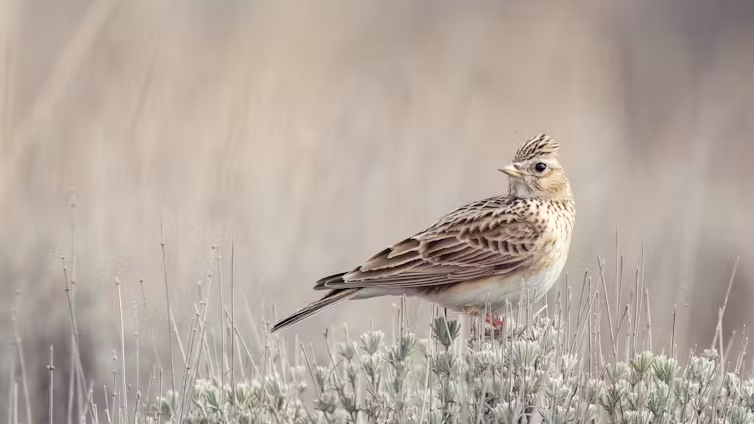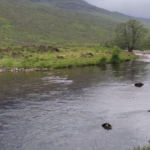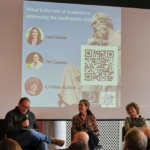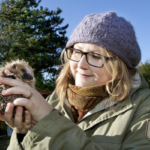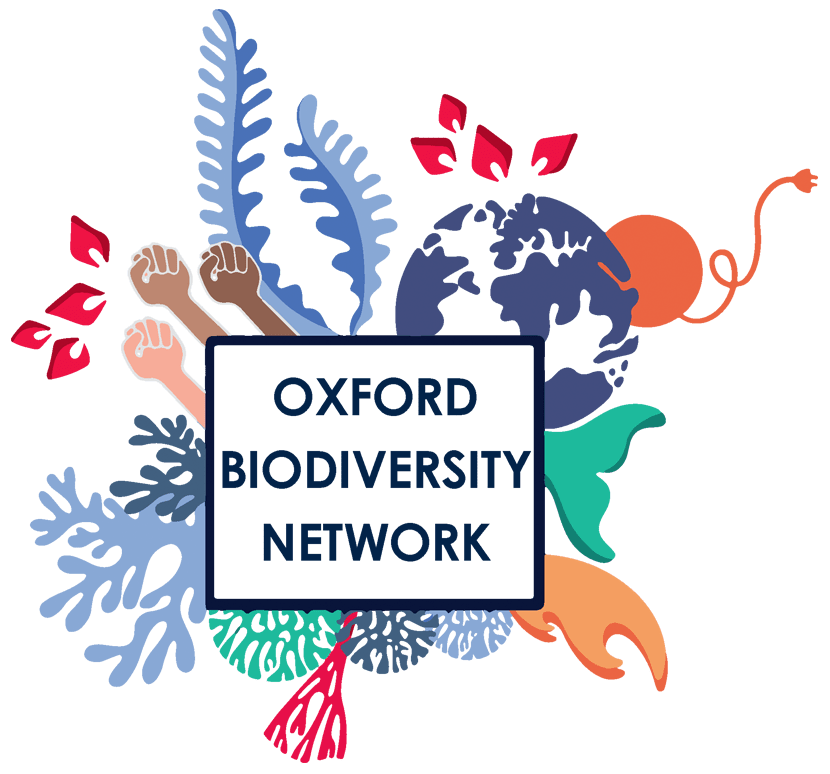Quantifying and reducing the biodiversity impact of our food: UNIQ+ mentoring for graduate study
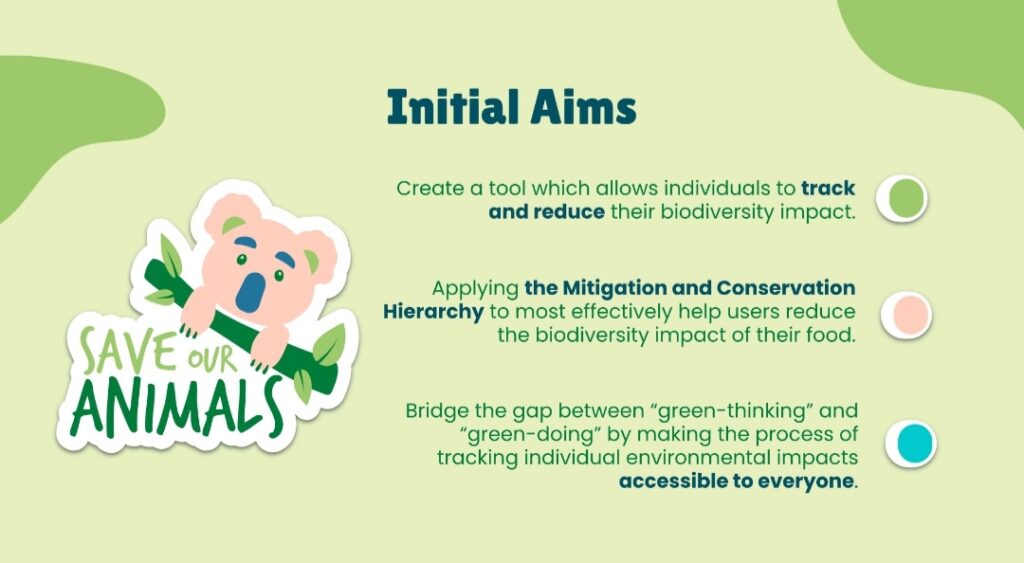
by Agnieszka Sokolowska
As a first-generation immigrant from a working-class family, graduate study always seemed distant and unreachable. In fact, I never even considered it as an option for my own future.
Applying for the UNIQ+ programme, I already knew that I wanted my career to be related to my passion for environmentalism and sustainability. I skipped past the long list of projects provided by the Mathematical Institute and decided to apply for a project with the Department of Zoology instead – I knew that my maths background would be helpful in the project, and I found that this project was the only one I was interested in: “Quantifying and reducing the biodiversity impact of our food”.
I spent weeks choosing the best references and redrafting my application, but I didn’t expect to receive an offer. In the meantime, I signed up to a summer school course on feminist literature to fill up my summer – which I cancelled as soon as I received an email confirming that I got into the UNIQ+ programme!
E.J. Milner-Gulland made me feel like a part of the team from the first ICCS meeting I attended. Moreover, the diverse mix of people in the research group challenged my negative preconceptions of academia and graduate study. Getting the chance to see this academic space “from the inside” meant that I could get comfortable in it and imagine myself in it in the future; it didn’t feel unattainable anymore. I believe this is one of the most important experiences I had during the internship because it encouraged me to seriously explore the idea of pursuing graduate study.
The first week of the programme was dedicated to a data science course, where I joined the intermediate group in learning more about statistical modelling using R. Upon completing this, I began the 5-week-long project entitled “Quantifying and reducing the biodiversity impact of our food” alongside my research partner, Grace Moore, and with the support from E.J., Hollie Booth, Henry Grub and Micheal Clark. We worked on developing a tool to help individuals reduce the biodiversity impact of their grocery shop. After conveying our first informal, exploratory survey we decided to design an app which doubles as a grocery list; the most efficient way to input products even from a big shopping trip also has the benefit of the ability to advise the user on their product choices before the purchase.
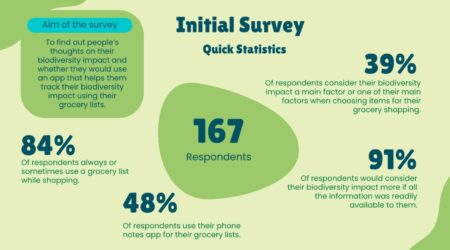 We continued on to break down the Mitigation and Conservation Hierarchy into 5 stages: 1) Calculate the impacts, 2) Set targets to mitigate those impacts, 3) Decide on an appropriate set of actions (Four steps for the Earth), 4) Implement and monitor those actions for their effectiveness and 5) Feedback and improve at each step. We used these 5 stages to guide the functionality of the app. To calculate the impacts of an example user’s overall grocery shop, I used an aggregated Food Database and R to estimate impacts in terms of each of the available ecometrics (land use, greenhouse gas emissions, water usage and eutrophication). A combination of these, allowed me to calculate a relative ‘score’ which the app can use to compare users (for the purpose of e.g. leadership boards or putting the user’s impacts in context by comparing local averages) as well as tract the user’s individual progress towards their goal. Once the user is given the chance to understand their impacts, they are prompted to choose a longer term goal for reducing their biodiversity impacts which the app then breaks down into weekly goals. These then are used to make suggestions of high impact products to tackle so the user can meet their weekly goal. Once the user chooses a product to tackle, they are then prompted to choose an action from “Refrain”, “Reduce”, “Restore” and “Renew”, each action making different suggestions on how to tackle the impact of that specific product within the user’s grocery list.
We continued on to break down the Mitigation and Conservation Hierarchy into 5 stages: 1) Calculate the impacts, 2) Set targets to mitigate those impacts, 3) Decide on an appropriate set of actions (Four steps for the Earth), 4) Implement and monitor those actions for their effectiveness and 5) Feedback and improve at each step. We used these 5 stages to guide the functionality of the app. To calculate the impacts of an example user’s overall grocery shop, I used an aggregated Food Database and R to estimate impacts in terms of each of the available ecometrics (land use, greenhouse gas emissions, water usage and eutrophication). A combination of these, allowed me to calculate a relative ‘score’ which the app can use to compare users (for the purpose of e.g. leadership boards or putting the user’s impacts in context by comparing local averages) as well as tract the user’s individual progress towards their goal. Once the user is given the chance to understand their impacts, they are prompted to choose a longer term goal for reducing their biodiversity impacts which the app then breaks down into weekly goals. These then are used to make suggestions of high impact products to tackle so the user can meet their weekly goal. Once the user chooses a product to tackle, they are then prompted to choose an action from “Refrain”, “Reduce”, “Restore” and “Renew”, each action making different suggestions on how to tackle the impact of that specific product within the user’s grocery list.
One of the suggestions, under “Refrain” is to completely remove the product from the grocery list and potentially remove it with a suitable alternative. Therefore, the next problem we decided to tackle was to figure out how the app can choose suitable alternatives. To do this, we conveyed another exploratory survey which focused on finding out what swaps potential users are willing to make and what swaps they see as appropriate e.g. substituting chicken for beef steak or tuna for chickpeas. Although we found some interesting results from this survey, our project was coming to an end so we didn’t get the chance to implement these in great detail.
One of the things that attracted me to this project was that there were plans to see it through to a final product and that the research I’d be doing would contribute to a much larger project. Now that it’s over, I’m glad to know that Eleanor Hammond is working to bring this app to life.
The UNIQ+ programme solidified my desire to pursue postgraduate study – maybe even at Oxford!
Other recent stories
